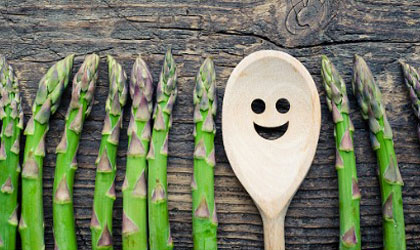
In an ideal world, children should get all their nutritional goodness from a healthy, balanced diet that includes plenty of fresh vegetables and fruits, milk and dairy products, protein (meat, fish, and eggs), and whole grains. However, this isn’t always possible, especially if you’re a time-crunched parent or your child is a picky eater.
That’s why many people decide to supplement their child’s diet with a multivitamin – not be taken in place of good nutrition, but as an insurance policy.
Here, we take a closer look into multivitamins for kids.
Do children need multivitamins?
There are many reasons why your child might need a multivitamin. Firstly, children don’t always have huge and varied appetites, which can make cramming in enough calories difficult. And if a child’s diet fails to deliver enough nutrition from fats, protein, and calories, it may affect growth and development.
There’s also the issue of pickiness. It’s entirely plausible that a growing child won’t enjoy eating healthy whole foods, like green leafy vegetables and oily fish, which can leave gaps in their diet. Fussiness is also compounded by the ubiquity and availability of highly processed, fast food and fizzy drinks. If your child’s diet mainly comprises convenience food, again, there will be nutritional shortfalls.
Children on restricted diets, such as vegetarians and vegans (link to article: what are vegan multivitamins?) may need further support from a multivitamin. Though healthy, plant-based diets can still lead to shortages in vitamin B12, calcium, zinc, iron, and iodine, which may affect a child’s physical and emotional health.
Finally, children with chronic health conditions, like digestive problems or asthma may require a multivitamin.
How are multivitamins for kids different to those for adults?
Different multivitamins (link to article: What are the different types of multivitamins?) cater for different nutritional needs. And since children don’t have the same dietary requirements as adults, a multivitamin designed for kids will differ from formulas for adults and seniors.
Consuming specific vitamins in excess – vitamins A, C, and D – could potentially be toxic for children. That’s why it’s so important to choose a product specifically formulated for children – not adults.
Multivitamins for kids also tend to look different. Many children find it hard – or at least, don’t enjoy – swallowing traditional tablets. Therefore, manufacturers often make chewable multis. Some chewable formulas, however, are known to contain high amounts of sugar, so try to find a product that contains xylitol instead.
If your child doesn’t get on with chewable tablets, multivitamins for kids are also available in effervescent tablets that you add to water or juice.
You can also find gummy multivitamins on the market. However, thanks to their sweet-like exterior, they can be easy for children to overeat and even lead to toxicity.
Whatever multivitamin you decide, always keep them out of your child’s reach.
What vitamins should kids take?
Children need a range of vitamins and minerals to support their growth and development.1 You can expect to find the following nutrients in comprehensive multivitamins for kids.
-
Vitamin A: for normal skin, vision, and immune function
-
B vitamins for normal psychological function, the normal functioning of the nervous system, and energy-metabolism
-
Vitamin C: for normal skin, gums, bones, and teeth
-
Vitamin D3: for the maintenance of normal bones and teeth, muscle function, and immune function
-
Calcium: for normal bones and teeth
-
Iron: for normal cognitive development of children, energy-yielding metabolism, and oxygen transport in the body
-
Zinc: for the maintenance of normal skin, hair, nails, and bones
-
Iodine: for the normal growth of children
Are there vegetarian multivitamins for kids?
There are well-founded concerns over nutrient deficiencies, inadequate energy intake, and faltering growth when raising children on a vegan or vegetarian diet. Those on predominantly plant-based diets can experience deficiencies in vitamin B12, calcium, zinc, and iron. And without these essential nutrients, a child may struggle to reach their full emotional and physical potential.
Supplementing your child’s vegetarian or vegan diet with a suitable multivitamin is a helpful way to plug any gaps and ensure they’re hitting each nutritional note.
If your child is on a restrictive diet, a picky eater, or struggles to absorb nutrients due to a health condition, a multivitamin will ensure all of their nutritional bases are covered. You can browse our full range of multivitamins for kids here.
Want to know more about multivitamins? Please have a chat with one of our expert Nutrition Advisors. Just click the 'Nutrition Advice' button located at the bottom right-hand corner of our website to start a live chat with a member of our Nutrition Team.
Alternatively, you can also head back to our dedicated blog for information.
References
- Nutrition.org.uk. Available at: https://www.nutrition.org.uk/healthyliving/lifestages/children.html?start=1
Related Posts
Disclaimer: The information presented by Nature's Best is for informational purposes only. It is based on scientific studies (human, animal, or in vitro), clinical experience, or traditional usage as cited in each article. The results reported may not necessarily occur in all individuals. Self-treatment is not recommended for life-threatening conditions that require medical treatment under a doctor's care. For many of the conditions discussed, treatment with prescription or over the counter medication is also available. Consult your doctor, practitioner, and/or pharmacist for any health problem and before using any supplements or before making any changes in prescribed medications.

Keri
Keri Filtness has worked in the Nutrition Industry for 19 years. She is regularly called upon for her professional comments on health and nutrition related news. Her opinions have been featured by BBC3, Prima, Vitality, The Mirror, Woman’s Own and Cycling Weekly, amongst others. She has also worked one to one with journalists, analysing their diets and health concerns and recommending changes and additions, where appropriate.



